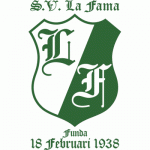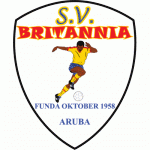Aruba (League) - AI Football Predictions Online
| AI | ||
|---|---|---|
 Division di Honor Division di Honor | ||
| 2025-12-20 22:30 |
| 1 1 |
| 2025-12-21 00:00 |
| 1 1 |
| 2025-12-21 00:30 |
| 0 1 |
| 2025-12-21 22:00 |
| 1 1 |
| 2025-12-23 00:00 |
| 1 1 |
Statistics for Aruba (League)
Football in Aruba: A Deep Dive into the Island's Passion for the Game
Aruba, a picturesque island nestled in the Caribbean Sea, is renowned for its stunning beaches, vibrant culture, and warm hospitality. However, beyond the sun-soaked shores and azure waters lies a deep-seated passion for football that unites the local community. While Aruba may not be the first place that comes to mind when discussing global football powerhouses, its football landscape is rich with history, talent, and a unique blend of cultural influences that shape its identity. This article explores the evolution, structure, and significance of football in Aruba, highlighting the fervor that drives the island's players and fans alike.
The Historical Roots of Football in Aruba
Football was introduced to Aruba in the late 19th century, primarily influenced by Dutch colonialism. As a former Dutch colony, the island adopted many aspects of Dutch culture, including the love for football. The establishment of local clubs began in the early 20th century, with teams like Club Deportivo Deportivo Nacional and Aruba's own SV Estrella paving the way for organized football competitions. These early clubs became the backbone of the football community, creating a framework for local tournaments and fostering a love for the sport among the youth.
Over the decades, the Aruba Football Federation (AFF) was founded to oversee the administration and development of the sport on the island. The AFF has been instrumental in organizing leagues, tournaments, and youth programs, ensuring that football remains a vital part of Aruban society. The establishment of the Aruban First Division, the top tier of football in Aruba, has provided a competitive platform for local talent to shine and has led to an increase in the quality of play across the island.
Local Leagues and Competitions
The Aruban football league system is structured similarly to many traditional football leagues worldwide, with a hierarchy of divisions culminating in the Aruban First Division. The league comprises several clubs, including notable teams such as Real Aruba, SV Dakota, and Aruba United. The intense rivalries between these clubs contribute to the vibrant football culture, with matches drawing large crowds of passionate supporters.
One of the highlights of the Aruban football calendar is the annual Copa Aruba, a knockout tournament that showcases teams from various divisions. This competition not only gives underdog clubs the chance to compete against top-tier teams but also serves as a festive occasion that brings the community together. The Copa Aruba often produces memorable moments, such as unexpected upsets and thrilling matches that become part of the island's sporting folklore.
Player Development and Youth Programs
Football in Aruba is not just about the leagues and competitions; it is also deeply intertwined with youth development. The AFF has implemented various initiatives to nurture young talent, including coaching clinics, youth academies, and school partnerships. These programs aim to provide aspiring footballers with the necessary skills, training, and exposure to advance their careers. Many promising players have emerged from these initiatives, with some even securing opportunities to play in overseas leagues.
One standout example is the journey of Aruban footballer Gervinho, who began his career at a local club before moving to play professionally abroad. His success story serves as inspiration for young athletes on the island, demonstrating that with dedication and hard work, the dream of playing football at higher levels is attainable. The passion for football among the youth is palpable, as local parks and beaches are often filled with children honing their skills, playing makeshift games, and dreaming of emulating their football idols.
Community and Cultural Significance
The impact of football in Aruba extends beyond the pitch; it plays a crucial role in fostering community spirit and cultural identity. Match days are vibrant events where families and friends gather to support their local teams, creating an electric atmosphere filled with chants, cheers, and a sense of camaraderie. The shared experience of watching a game strengthens bonds within the community and promotes social cohesion.
Moreover, football serves as a platform for cultural expression, with clubs often reflecting the diverse backgrounds of their supporters. The influence of Caribbean, Dutch, and Latin American cultures is evident in the style of play, fan celebrations, and even club colors. This melting pot of influences makes Aruban football unique, showcasing the island's rich heritage while fostering a sense of belonging among its inhabitants.
The Future of Football in Aruba
As Aruba continues to develop as a footballing nation, the future looks promising. The AFF is focused on enhancing the infrastructure for football, investing in better training facilities, and increasing the visibility of the sport within the region. Additionally, collaborations with international football organizations aim to provide Aruban players access to higher-level competitions and training methods.
With an ever-growing pool of talent and an unwavering passion for the game, Aruba is poised to carve out its place in the global football landscape. The island's commitment to nurturing young players and fostering a love for football ensures that the beautiful game will remain an integral part of its cultural identity for generations to come. As the sun sets over the Caribbean, casting a golden hue on the pitches, the heartbeat of Aruban football reverberates, echoing the dreams and aspirations of its players and fans alike.









